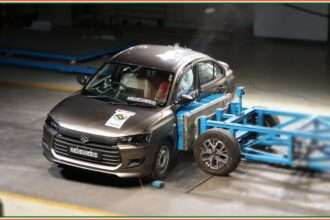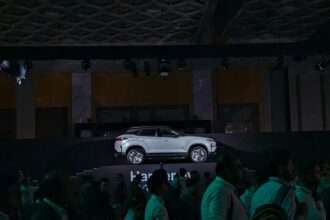In a thought-provoking address at the 50th National Management Convention organized by the All India Management Association (AIMA), R.C. Bhargava, the Chairman of Maruti Suzuki, voiced his reservations about the widespread adoption of electric vehicles (EVs) in India. Bhargava’s stance has ignited a discourse on the environmental implications of EVs in a country with a predominantly coal-based energy generation system.
Bhargava’s Argument Against EVs:
The core of Bhargava’s argument hinges on the environmental friendliness of EVs. He contended that EVs wouldn’t truly be environmentally friendly until a substantial portion of India’s electricity comes from renewable sources. Presently, a staggering 75% of India’s electricity is generated from coal, which casts a significant shadow over the purported green credentials of EVs. Bhargava contends that until India makes substantial progress in transitioning to cleaner energy sources, hybrid vehicles fueled by compressed natural gas (CNG) and green fuels such as ethanol and hydrogen could be more practical alternatives.
Transitioning to Hybrid and Green Fuels:
Bhargava proposed a shift towards hybrid fuels like CNG, which offer cleaner combustion compared to petrol, and green fuels like ethanol and hydrogen. He sees these as more sustainable options until India’s energy mix becomes significantly greener.

Maruti Suzuki’s Electric Vehicle Endeavors:
While acknowledging that Maruti Suzuki had developed an electric version of the Wagon R, Bhargava highlighted the high production costs that hindered its market viability. The company now aims to introduce larger electric models that could provide more cost-effective solutions. Despite these efforts, Bhargava estimated that electric cars would comprise only 15% to 20% of Maruti’s total sales, highlighting the current modest share of electric vehicles in India’s car market, which stands at just 2%.
Challenges and Opportunities:
Bhargava’s address also touched on other pertinent issues in India’s automotive landscape. He noted the shift in consumer preferences from small hatchbacks to SUVs, which has impacted the market’s growth rate. Additionally, Bhargava emphasized the need for domestic component manufacturing to strengthen the automotive supply chain.
Confidence in India’s Growth Potential:
Despite the challenges, Bhargava expressed confidence in India’s car market, highlighting its unparalleled growth potential compared to mature markets. He underscored the growing competition in the Indian car market as global automakers recognize opportunities in evolving technology and regulations.
Manufacturing Sector Growth:
Bhargava also addressed the stagnant growth of India’s manufacturing sector, attributing part of the issue to state government bureaucracies and an entrepreneurial focus on personal wealth accumulation rather than company growth. He called for a shift in mindset and greater state support to facilitate manufacturing sector growth.
Road Safety Concerns:
In the realm of road safety, Bhargava stressed the need for mandatory vehicle fitness certifications, especially for two-wheelers and pedestrians, who are disproportionately affected by road accidents. He highlighted the importance of stringent driving license tests to improve road safety.
In Conclusion:
R.C. Bhargava’s perspective on prioritizing hydrogen and ethanol cars over EVs has sparked a vital conversation about India’s complex automotive landscape. While EVs hold promise for a greener future, Bhargava’s nuanced arguments highlight the need for a holistic approach that considers India’s energy mix and unique challenges on the road to sustainability. The evolution of India’s automotive sector will undoubtedly be influenced by these ongoing debates and the industry’s capacity to adapt to changing dynamics.




